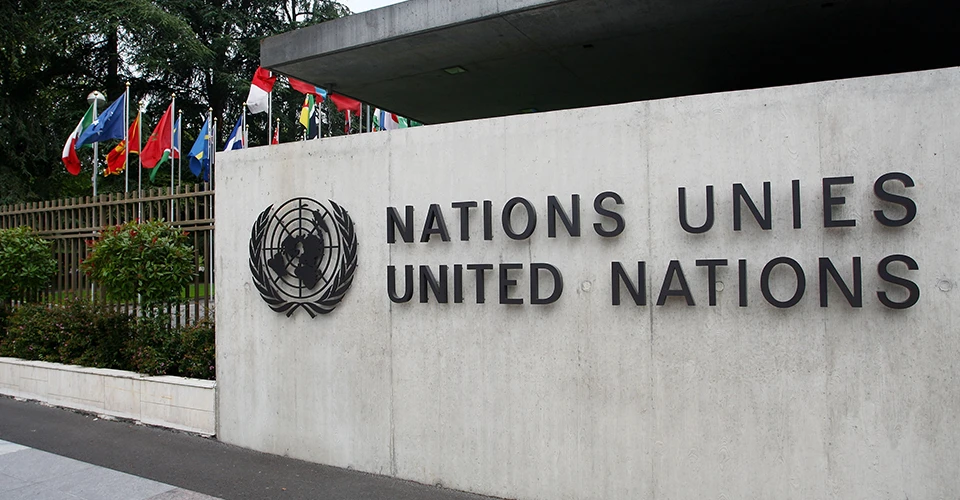
UN ready to evacuate residents from temporarily occupied Kherson region as soon as Russia grants access
On Thursday, June 8, Ukraine and the UN agreed to organize teams to evacuate civilians from the occupied left bank of the Dnipro River in the Kherson region as soon as Russia grants access
The Foreign Affairs Ministry's statement says this.
Ukraine's Foreign Minister Dmytro Kuleba and UN Resident Coordinator Denise Brown have agreed to form UN teams to provide humanitarian assistance and evacuate people in the affected occupied territories on the left bank of the Dnipro River. This will be done immediately after receiving access and security guarantees from the Russian Federation.
“As a result of the meeting, it was agreed that the UN will immediately increase the volume of assistance and send additional forces to Kherson and other affected regions. In addition, it was agreed that the UN will immediately form groups in Zaporizhzhia and Kherson to be sent to the affected occupied territories of the left bank of the Dnipro River to provide humanitarian assistance and evacuate people, provided that safe passage to the occupied territories from the government-controlled territory is ensured,” the press service writes.
It is reported that Ukraine provides all UN security guarantees for humanitarian operations throughout the affected area.
“The parties agreed that these UN units will deploy to the affected areas in the temporarily occupied territories from our territories as soon as Russia provides access and security guarantees. The United Nations is currently awaiting the provision of these guarantees from the Russian side and access to the occupied territories affected by the explosion of the Kakhovka HPP dam,” the statement says.
The situation in the south of Ukraine after the Kakhovka dam explosion
On June 6, occupying Russian forces blew up the Kakhovka hydroelectric power plant, completely destroying it. The evacuation of residents of the flooded areas began. After that, President of Ukraine Volodymyr Zelenskyy convened an emergency meeting of the Security and Defense Council, and the world began to respond to the tragedy. Follow the detailed course of events here.
In particular, Ukraine's Cabinet of Ministers has allocated UAH 1.5 billion to build two new water mains that will help supply Kryvyi Rih, Nikopol and Marhanets with drinking water. In addition, the Kherson, Mykolaiv, Zaporizhzhia and Dnipro regions were allocated almost UAH 846 million to meet the regions' drinking water needs.
The Ministry of Agrarian Policy has estimated that about 10,000 hectares of agricultural land on the right bank will be flooded as a result of the destruction of the Kakhovka HPP.
On June 7, the Ministry of Health suggests the possibility of a cholera outbreak as a result of the Russians' blowing up the Kakhovka hydroelectric dam and flooding a number of settlements.
According to the experts, there is evidence to suggest that the dam's destruction was caused by an explosion from the inside.
As a result of the explosion of the Kakhovka hydroelectric power station, wheat prices rose by 3% to USD 6.4 per bushel, corn by 1%, and oats by 0.8%. After correction, wheat costs about USD 6.23.
In the occupied town of Oleshky, Kherson region, the first deaths have already occurred as a result of flooding after the Russian troops blew up the Kakhovka hydroelectric power plant, the mayor of the occupied town, Yevhen Ryshchuk, told Espreso.
Acting Director General of the Forests of Ukraine State Enterprise Yuriy Bolokhovets reported that 55,000 hectares of forest were threatened with flooding as a result of the explosion of the Kakhovka hydroelectric power plant.
On June 7, the Ministry of Health reported a massive fish pestilence in the Dnipropetrovsk region and urged people not to collect or eat dead fish, or buy them at spontaneous markets.
On June 8, the Ministry of Agrarian Policy said that Ukraine could lose several million tons of crops due to the Russians' explosion of the Kakhovka hydroelectric power plant.
Two water utilities in the Nikopol region were shut down due to the shallowing of the Kakhovka reservoir.
Water from the Kakhovka reservoir cut off the Kinburn Spit from the mainland.
- News












































